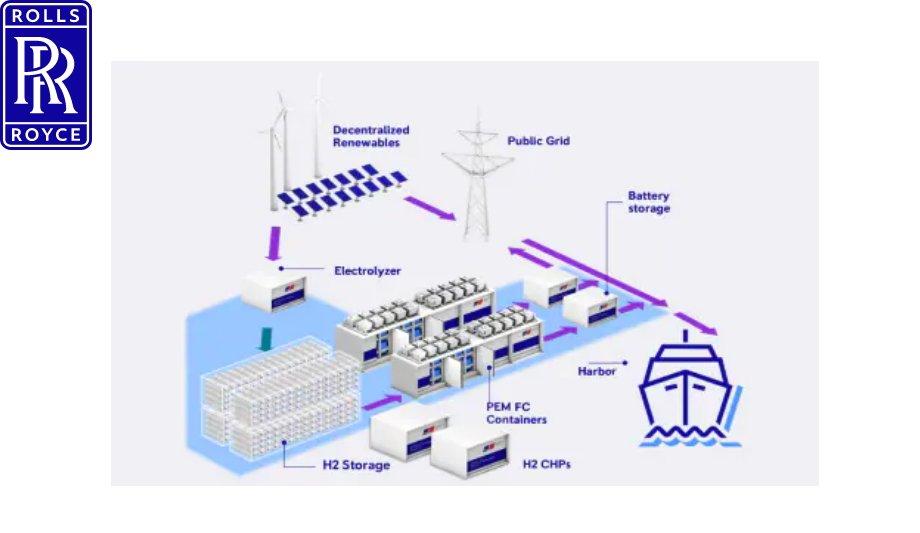Climate-friendly energy supply
Duisburg inland port shows what the energy supply of the future may look like Hydrogen as one of the fuels of the future and as an essential building block for the energy transition will play a central role when, in a few years' time, Duisburg, Europe's largest inland port, shows what the energy supply of the future may look like: decentralised and climate-friendly.
The largest container terminal in Europe's hinterland is currently being built on the former coal island, once a transshipment point for bulk cargo. It will not only set new standards in cargo handling, but also in climate-friendly energy supply. The main role in this project, called "enerport II", is played by fuel cells and mtu hydrogen engines - each with different tasks.
Hydrogen-powered mtu fuel cell solutions
The hydrogen-powered mtu fuel cell solutions supply electrical power as soon as the public power grid reaches its limits, for example for the on-board power supply of ships berthed in the port or in the event of other load peaks.
In addition, two combined heat and power plants with mtu hydrogen engines of the 4000 series convert hydrogen energy into electrical energy, which is fed into the supply network of the future container terminal or into the public grid.
German Federal Ministry for Economic Affairs and Energy funds the project for a period of four years
The waste heat is used to process heat or for heating buildings in and around the port. Furthermore, photovoltaic systems and battery storage are integrated into the local supply network, which is being realized by the port operator Duisport, Westenergie Netzservice, Netze Duisburg, Stadtwerke Duisburg and Stadtwerke Duisburg Energiehandel together with the Fraunhofer Institute Umsicht.
Project funding
The project is being funded by the German Federal Ministry for Economic Affairs and Energy for a period of four years as part of the "Hydrogen Technology Offensive".
Proving hydrogen technology in everyday use
"Hydrogen technology is no longer a dream of the future, but hydrogen technology will prove itself in everyday use in Duisburg. The parallel use of fuel cell solutions and hydrogen engines shows that we have taken the right path with our technology-open approach to the development of new solutions for the energy supply of the future," says Andreas Schell, CEO of Rolls-Royce Power Systems.
